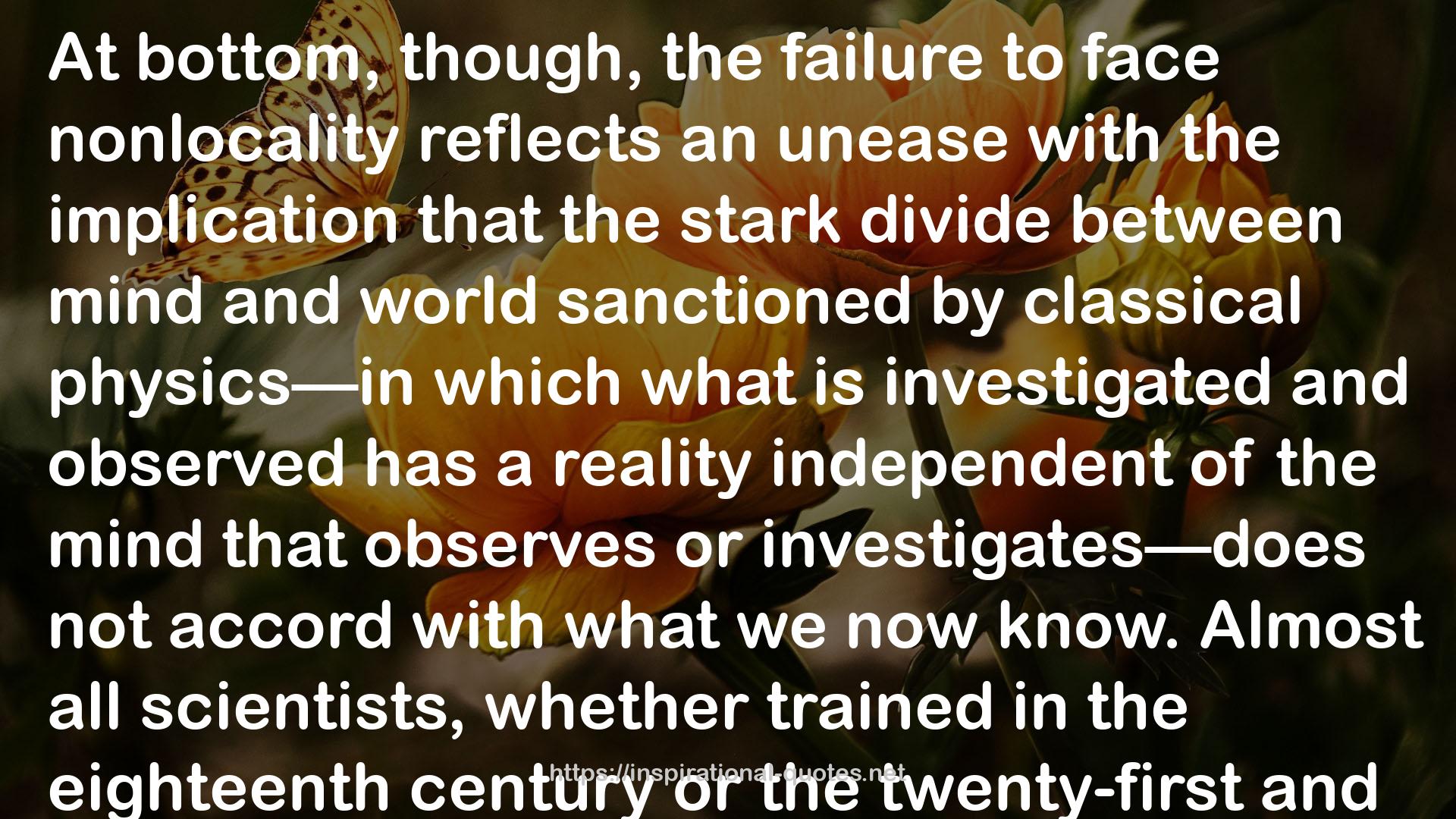" At bottom, though, the failure to face nonlocality reflects an unease with the implication that the stark divide between mind and world sanctioned by classical physics—in which what is investigated and observed has a reality independent of the mind that observes or investigates—does not accord with what we now know. Almost all scientists, whether trained in the eighteenth century or the twenty-first and whether they articulate it or not, believe that the observer stands apart from the observed, and the act of observation (short of knocking over the apparatus, of course) has no effect on the system being observed. This attitude usually works just fine. But it becomes a problem when the observing system is the same as the system being observed—when, that is, the mind is observing the brain. Nonlocality suggests that nature may not separate ethereal mind from substantive stuff as completely as classical materialist physics assumed. It is here, when the mind contemplates itself and also the brain (as when an OCD patient recognizes compulsions as arising from a brain glitch), that these issues come to a head. In the case of a human being who is observing his own thoughts, the fiction of the dynamic separation of mind and matter needs to be reexamined. "
― Jeffrey M. Schwartz , The Mind and the Brain: Neuroplasticity and the Power of Mental Force
